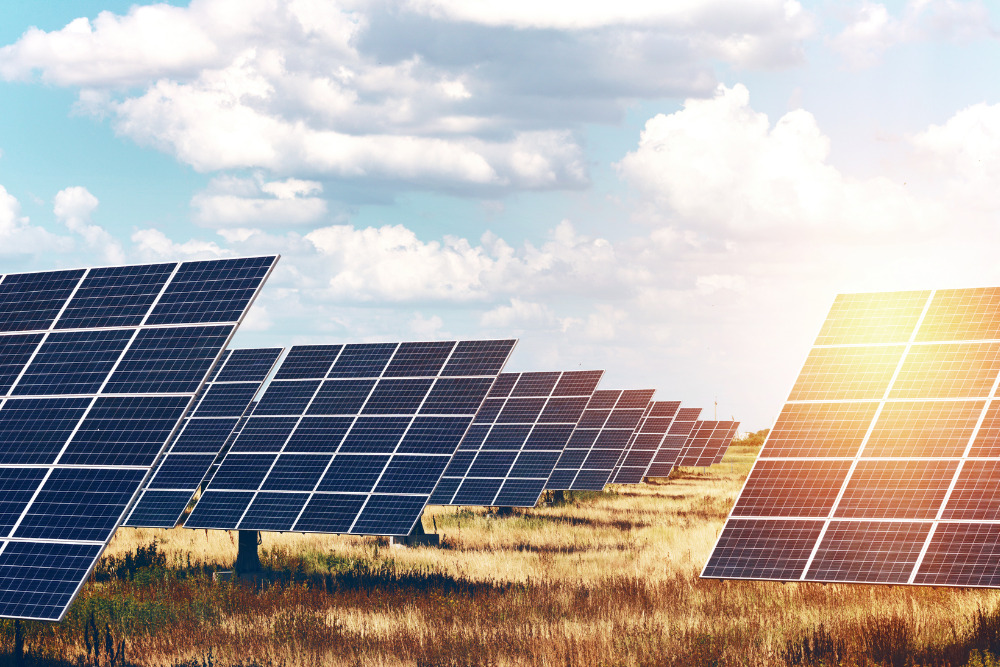Just How Solar Power Can Aid You Save Money and Decrease Your Carbon Footprint
The integration of solar power right into your energy profile offers an engaging chance for both economic savings and ecological stewardship. As various federal government incentives end up being readily available, the concern occurs: how can one properly navigate the preliminary financial investments and continuous advantages of solar modern technology to optimize both economic and environmental gains?
Recognizing Solar Power Cost Savings
While the shift to solar energy commonly includes a preliminary financial investment, comprehending solar power cost savings is important for home owners and organizations alike. Solar power systems can dramatically lower power costs by taking advantage of the sunlight's energy, translating into significant lasting monetary benefits.
Furthermore, solar power systems might receive different financial motivations, including tax obligation credit scores and rebates, further boosting their cost-effectiveness. The schedule of internet metering enables customers to sell excess power back to the grid, creating an additional profits stream. These elements contribute to the overall cost savings related to solar energy.

In enhancement to direct financial financial savings, solar power supplies the added benefit of raising residential or commercial property value. Residences outfitted with solar panels are often extra eye-catching to purchasers, as they guarantee reduced energy costs - Simply Solar Illinois. Comprehending these components is necessary for any individual thinking about solar energy, as it highlights not just the potential economic gains, yet additionally the more comprehensive ecological and economic benefits of embracing renewable resource solutions
First Prices vs. Long-Term Conveniences
When evaluating solar power, it is essential to weigh the first expenses versus the long-term benefits. The ahead of time investment for photovoltaic panels, installation, and associated devices can be substantial, often ranging from $15,000 to $30,000, relying on the system size and home power demands. This initial expenditure may deter some property owners; however, it is essential to take into consideration the prospective cost savings in time.
As soon as installed, solar power systems can dramatically lower or also remove month-to-month electrical energy bills, resulting in significant long-lasting economic benefits. Studies indicate that property owners can conserve anywhere from $10,000 to $30,000 over the life expectancy of their planetary system, usually 25 years. Additionally, several states supply motivations, tax obligation debts, and refunds that can counter initial expenses, making solar more obtainable.

Lowering Your Carbon Footprint
Reducing your carbon footprint is a crucial factor to consider in today's ecologically mindful society, and taking on solar energy is one of one of the most effective strategies to accomplish this goal. Solar power is a tidy, eco-friendly resource that considerably lessens dependence on nonrenewable fuel sources, which are major factors to greenhouse gas exhausts.

Additionally, the widespread adoption of solar modern technology encourages the growth of environment-friendly tasks and sustains technologies in energy storage space and efficiency. The even more individuals and organizations purchase solar energy, the better the cumulative reduction in carbon exhausts, fostering a cleaner ambience for future generations.
Federal Government Motivations and Discounts
Taking on solar power not just profits the atmosphere but can additionally bring about considerable financial savings, especially with the schedule of government motivations and discounts. Various federal, state, and regional programs are developed to motivate house owners and find more info businesses to buy solar power systems, making the shift much more budget-friendly.
Among one of the most prominent rewards is the Federal Investment Tax Debt (ITC), which permits planetary system owners to deduct a considerable percentage of the installment prices from their federal tax obligations. This incentive has actually been critical in reducing the in advance expenses connected with solar energy systems. Additionally, several states use their own tax credit scores, grants, and refunds that can better boost cost savings.
Additionally, some city governments provide real estate tax exceptions for solar installations, guaranteeing that home owners do not face increased real estate tax as an outcome of their renewable energy investments. Energy companies might click to read additionally use motivations, including internet metering and feed-in tariffs, which permit solar energy users to sell excess power back to the grid.
Picking the Right Planetary System
Picking the ideal solar system is crucial for making best use of power performance and economic benefits. The decision depends upon several variables, consisting of power requirements, budget, and offered room. Homeowners should begin by examining their electrical energy intake to figure out the system dimension required for ideal performance.
Following, think about the different kinds of solar technologies available. Simply Solar Illinois. Photovoltaic (PV) panels are one of the most common, converting sunshine directly into electrical power, while solar thermal systems concentrate on home heating water. Each kind has unique benefits relying on specific needs
Budget plan factors to consider are likewise paramount. Preliminary installment costs can vary dramatically, so it is very important to contrast quotes from multiple providers and check out funding alternatives. Government rewards and discounts can even more minimize the economic burden, making planetary systems more obtainable.
Conclusion
In summary, solar energy offers his response a viable service for attaining significant expense savings while all at once minimizing carbon emissions. The initial financial investment, though significant, yields considerable long-term monetary benefits, with prospective financial savings ranging from $10,000 to $30,000 over 25 years. The ecological benefits of solar power add to lasting practices important for combating environment modification. Government motivations improve the feasibility of solar technology adoption, motivating a transition towards a cleaner, extra economically effective energy source.
Comments on “Simply Solar Illinois: Full Solar Solutions for Sustainable Living”